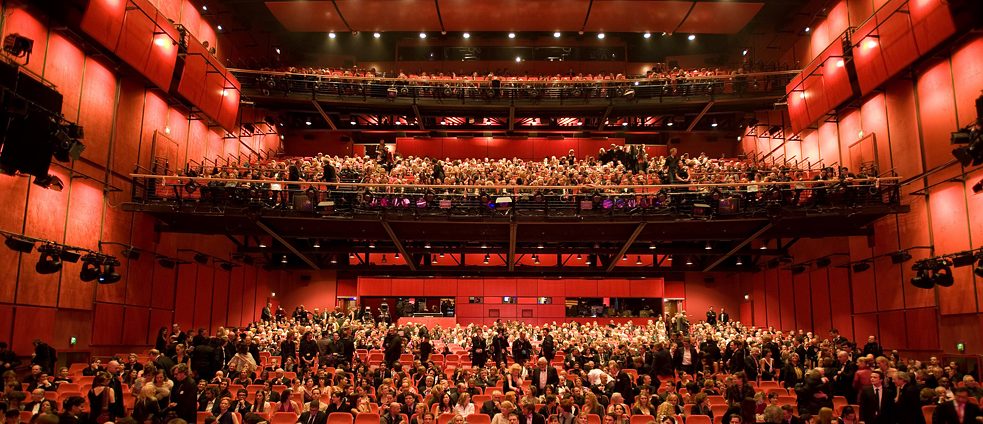Berlinale Bloggers 2019
Berlinale's other screens

When the Netflix logo flickered across Berlinale Palast’s screen during ‘Elisa & Marcela’, boos followed. Most of the near-full crowd wasn’t responsible, but the sound echoed through both of the cavernous space’s two levels of seating.
By Sarah Ward
Not even five minutes later, as Isabel Coixet’s historical drama delved into its titular characters’ forbidden romance, a sea of luminous rectangles proved the screening’s next unwanted distraction. People that had just vocalised their disdain for a platform associated with home entertainment were now treating the press session of the movie as if they were sitting in their own homes, one eye on their phones and the other barely on the film.
A man in my vicinity fell into both camps — exclaiming at Netflix’s presence, including in Berlinale’s competition, yet happily checking his email as Elisa & Marcela played. He kept returning to his device every few minutes, also illuminating the handset’s screen frequently almost as a bored habit. He was too far away to politely ask him to stop, but, like anyone who uses their phone mid-movie, would be too close even if he was 100 rows away. And so his device kept shining in the darkened room, intruding upon the viewing experience.
Bewildering behaviour
For three years running [when attending the Berlinale], this behaviour has proven bewildering; this isn’t an isolated incident at Berlinale. At one of the world’s biggest film festivals, at screenings for industry professionals including press, and in 1600-plus capacity venues, phones constantly light up. How can people employed in the industry, reliant upon it for their livelihood, and with a vested interest in its continued success as a theatrical experience show such disrespect to watching a film in a cinema? How can a cohort that rallies against the change that Netflix represents, and the potential implications for traditional film distribution also ooze contempt for what makes going to the movies special?Another question arises: if this behaviour is now common enough among industry professionals that it happens in every Berlinale press screening, why should general audiences fare better? And why should they pay rising cinema ticket prices to see a movie when they’re also paying for distractions? Attending regular cinema sessions can be a battleground, the silver screen competing against smaller rectangles wielded by movie-goers who just must scroll through social media, fire off text messages and even make calls. Attending general festival sessions has taken the same trajectory, and now the people who should champion an unvarnished viewing experience are also following suit.
Too busy to appreciate the medium OF film?
Everyone is busy at Berlinale, rushing between screenings, lining up meetings, reworking schedules, attending events, and trying to write, work and/or network around viewing films (and eat and sleep as well). Alas, if attendees are too busy to appreciate the medium as it’s designed, or the work put into each film gracing Berlinale’s big screens, then the festival is no longer a celebration of cinema. Instead, audiences are becoming complicit in the very thing that Netflix opponents so often claim: the devaluing of an art form.